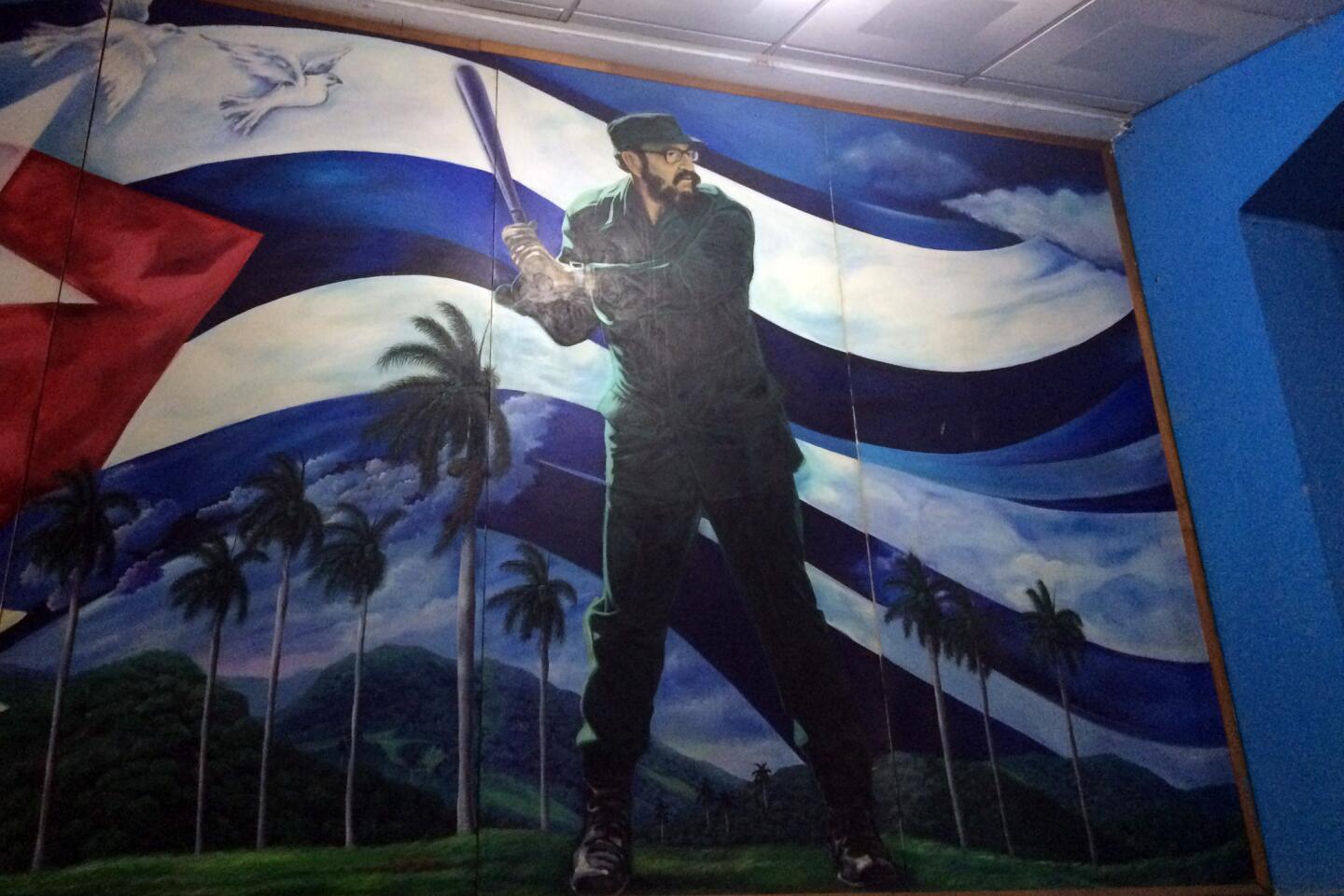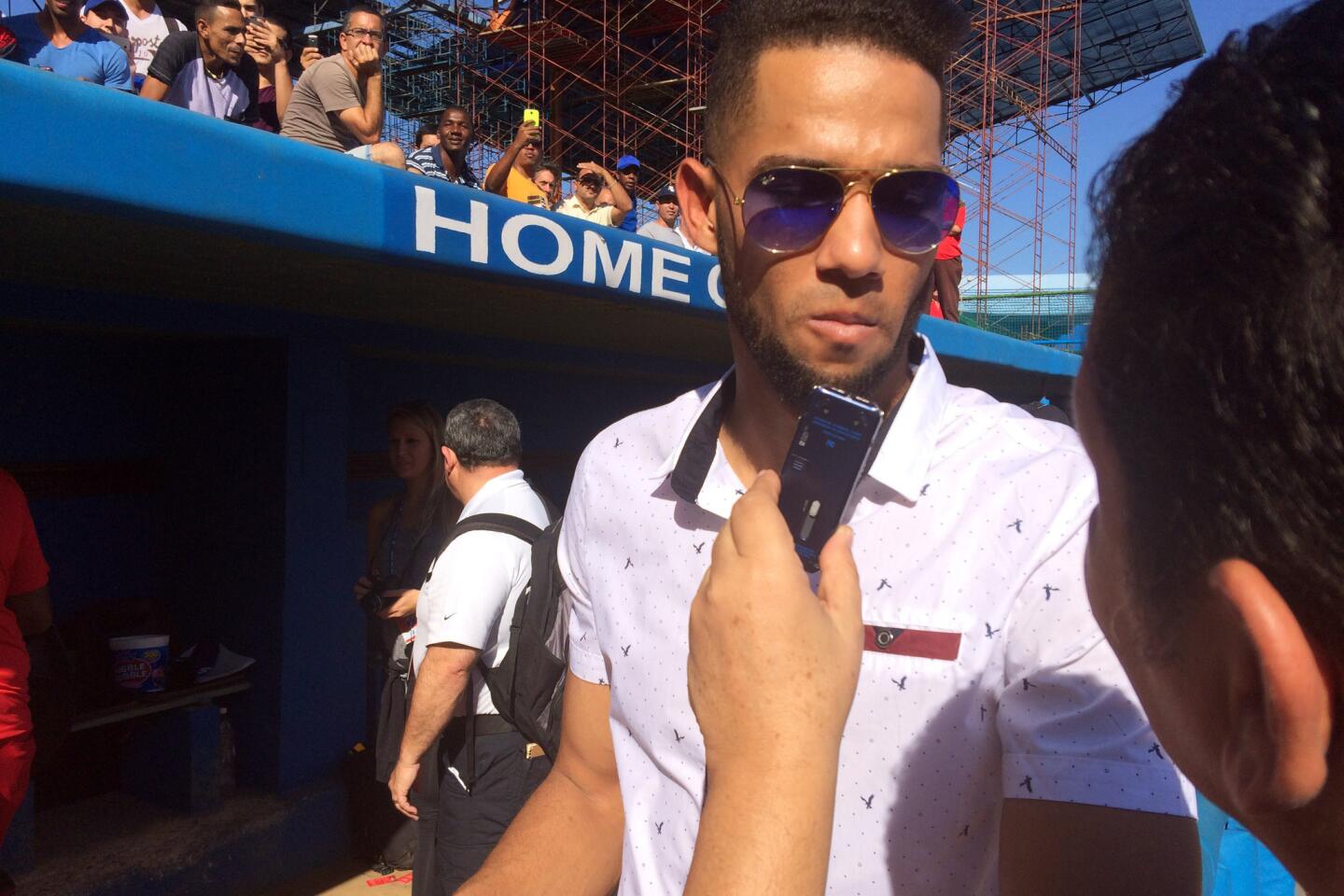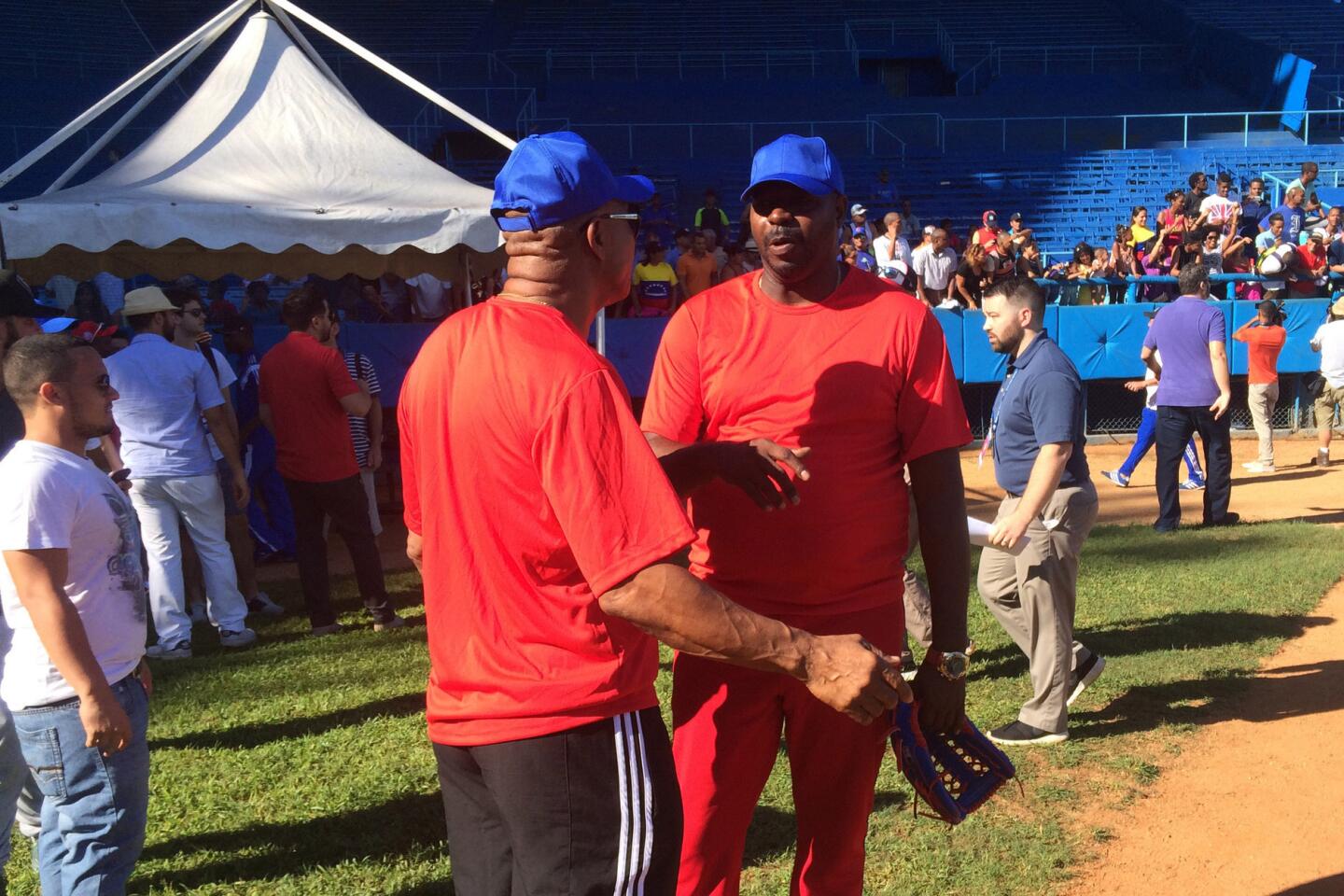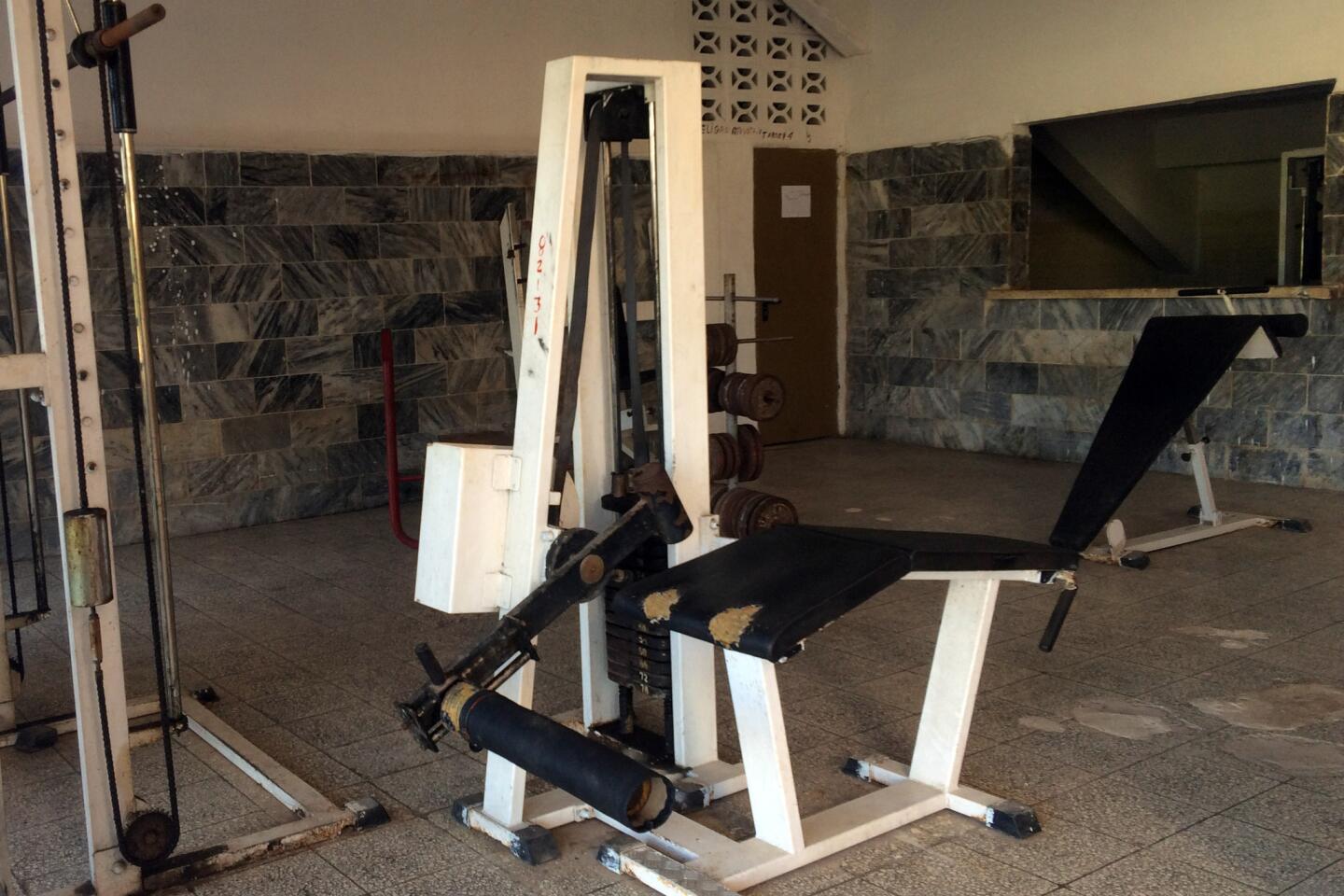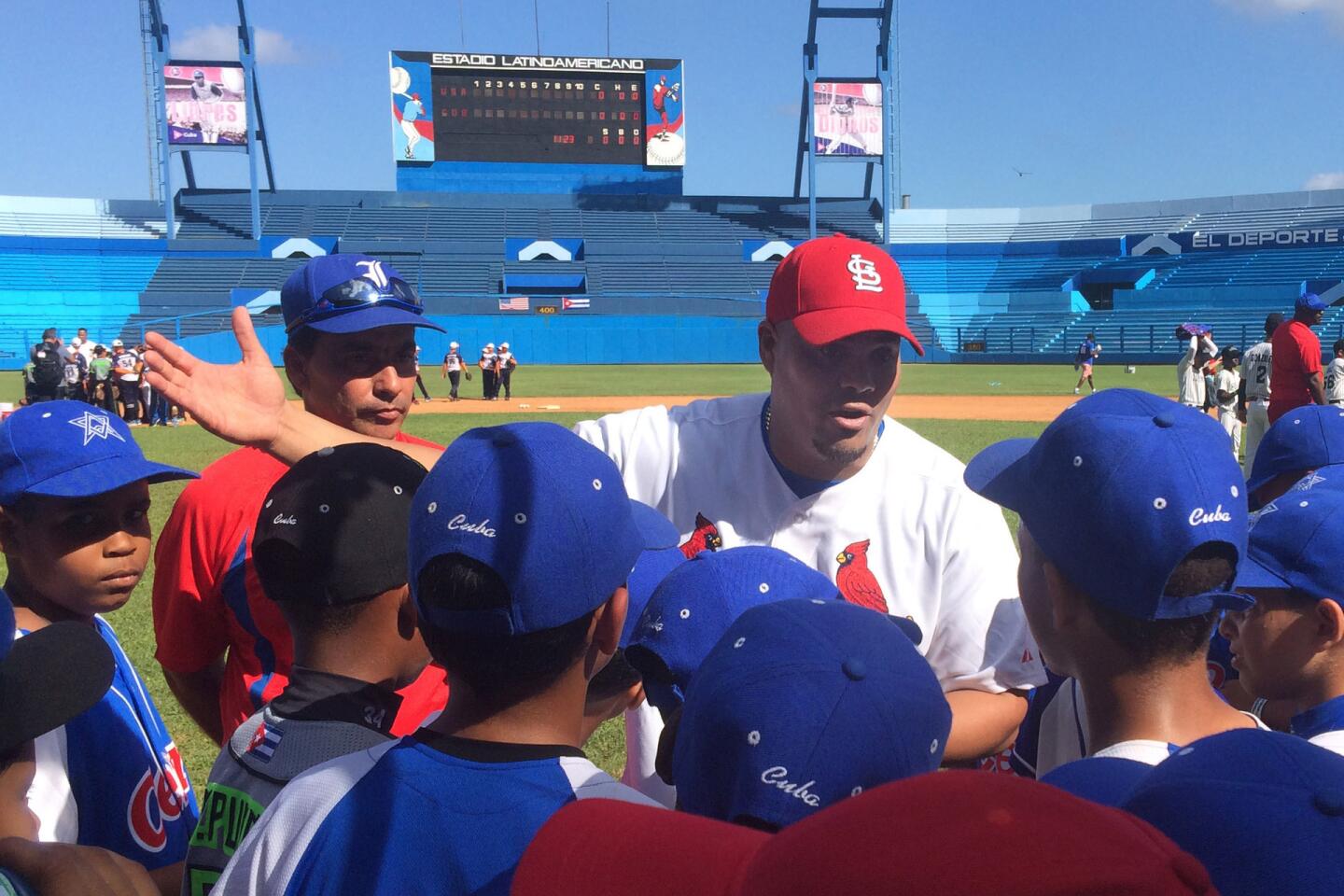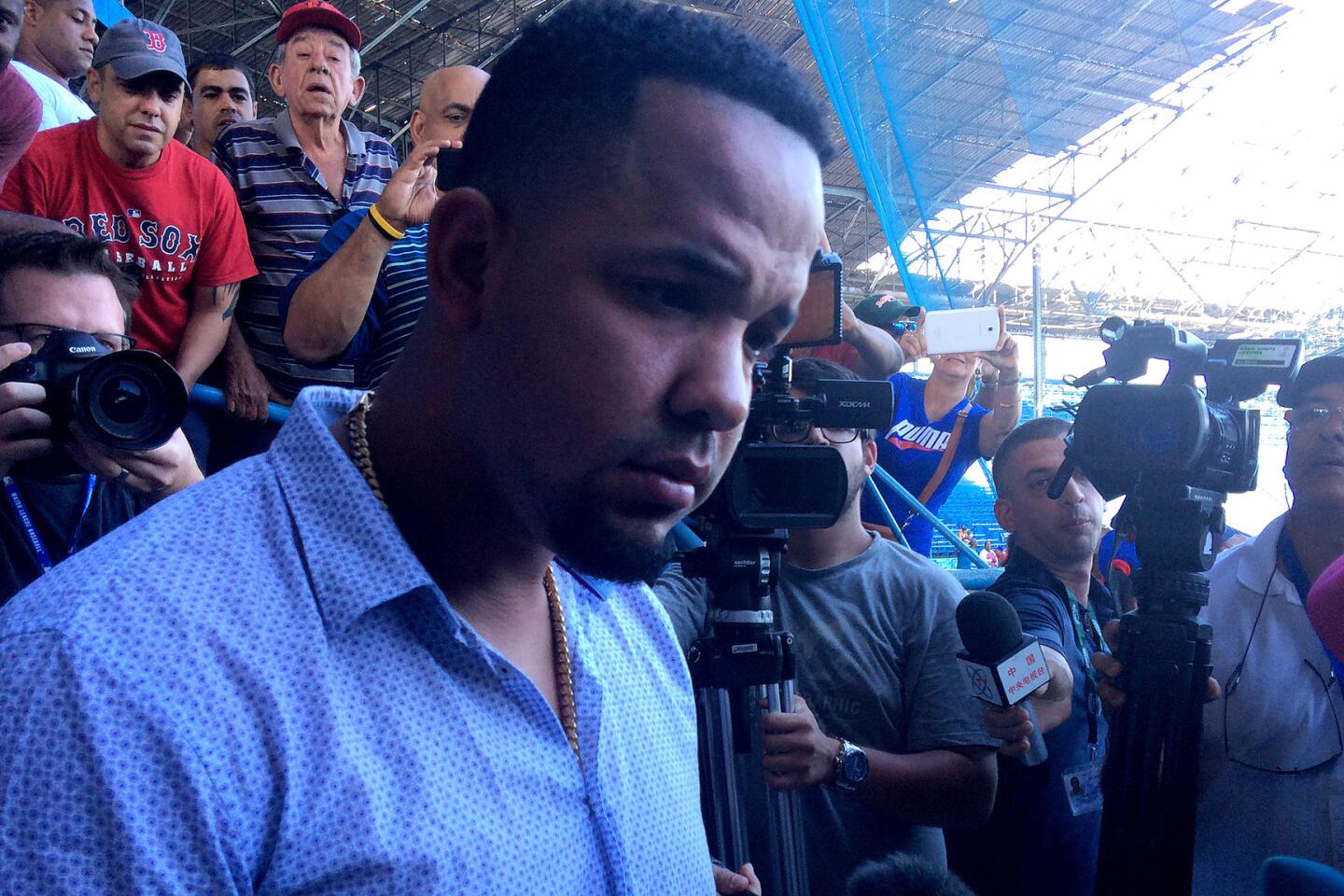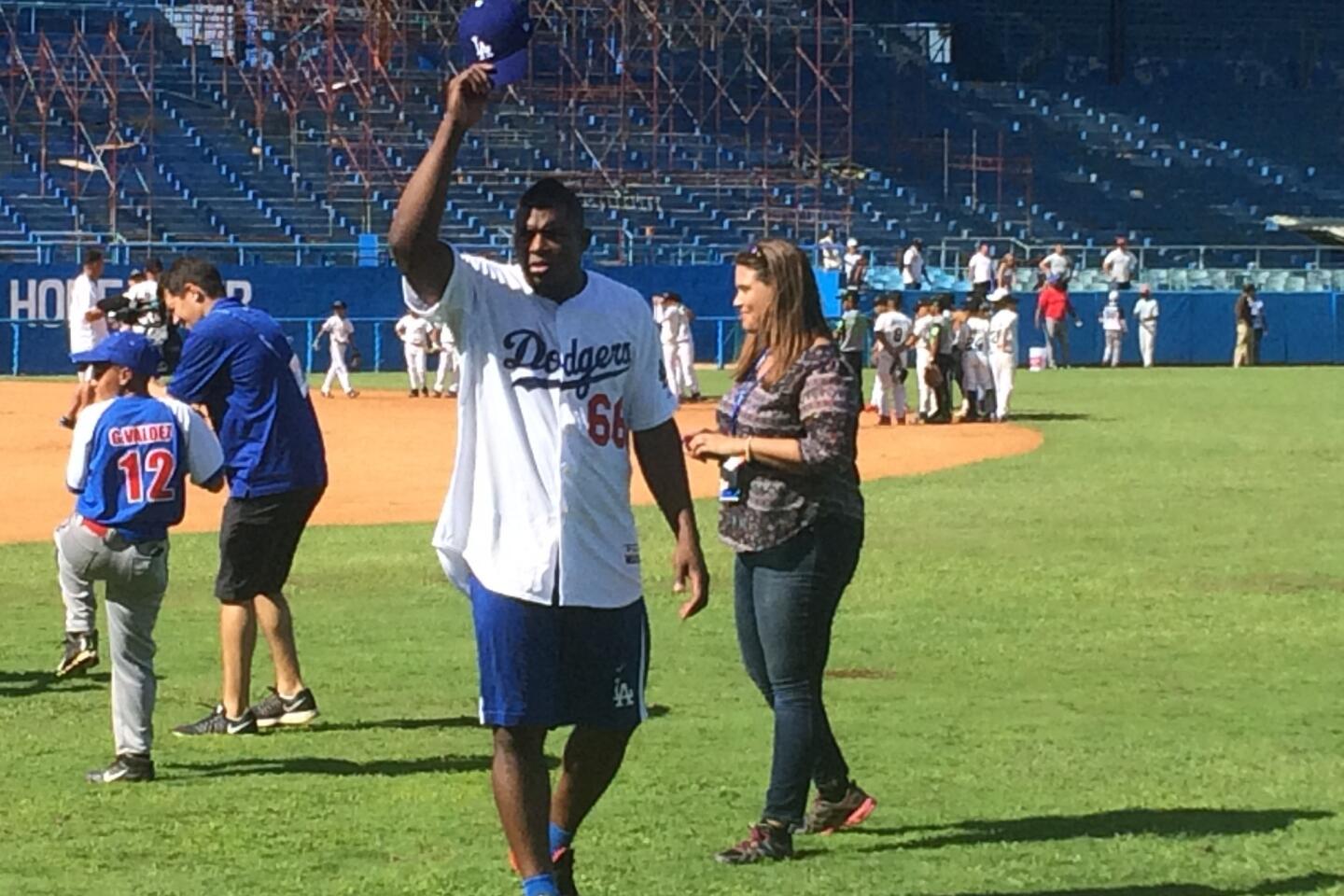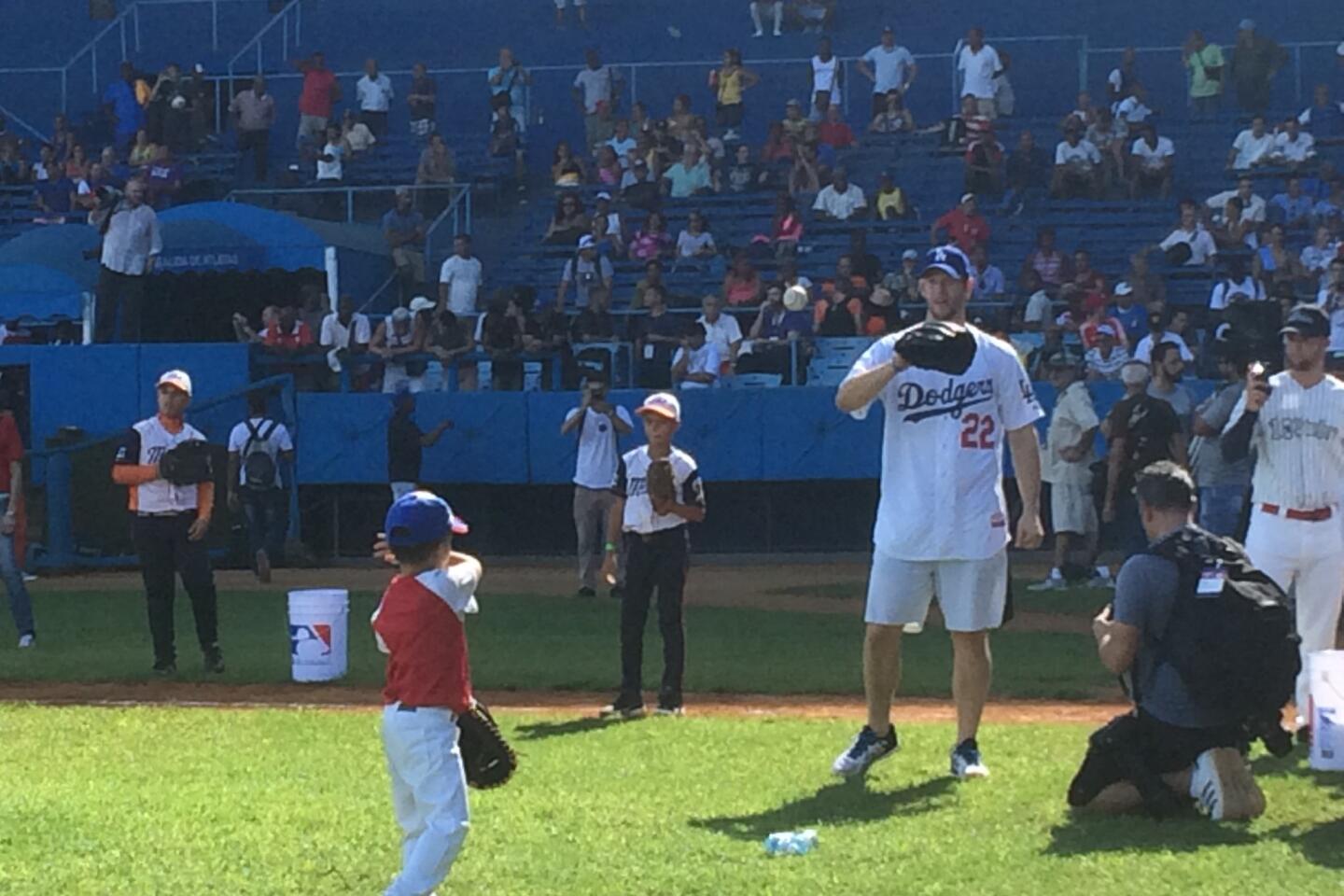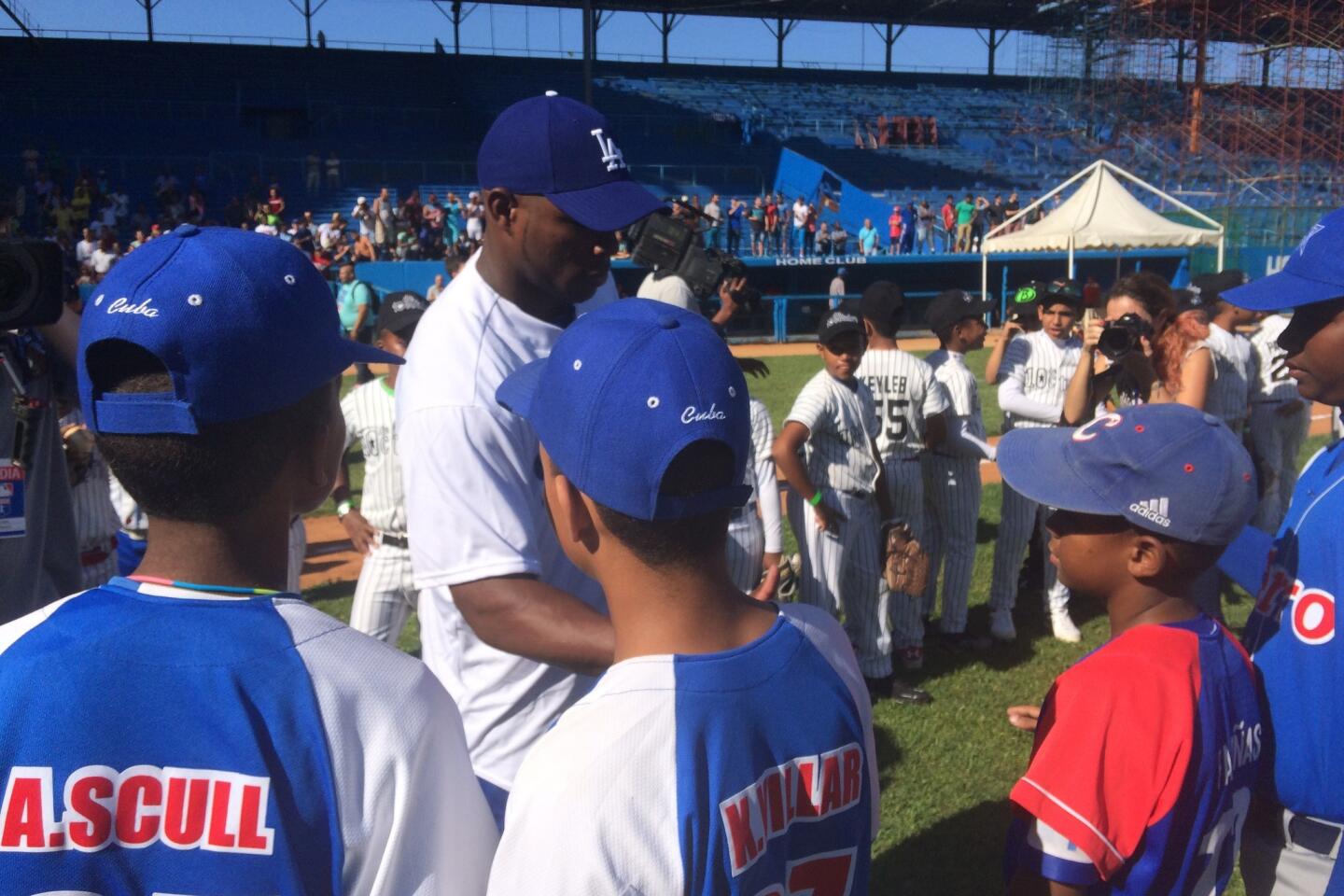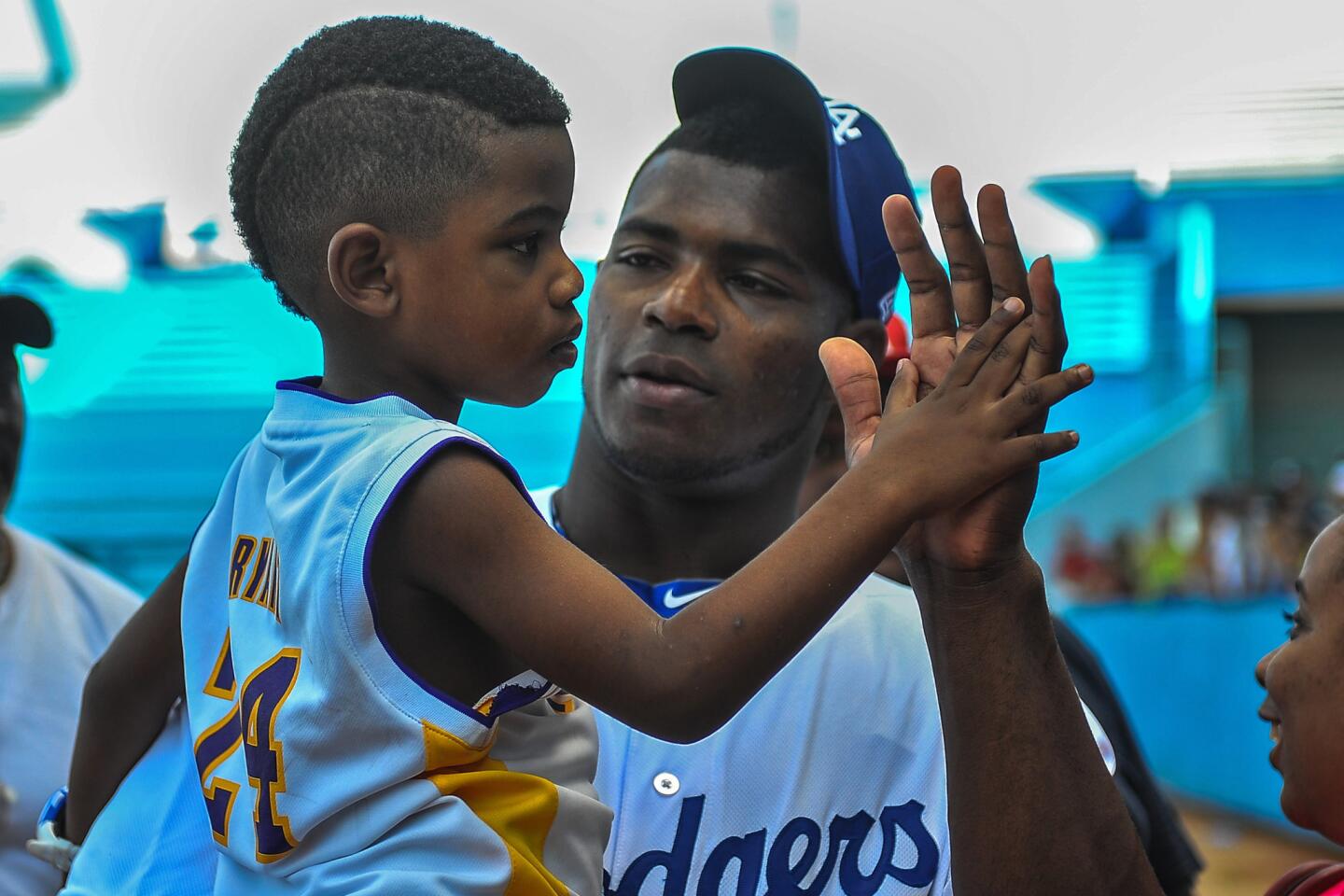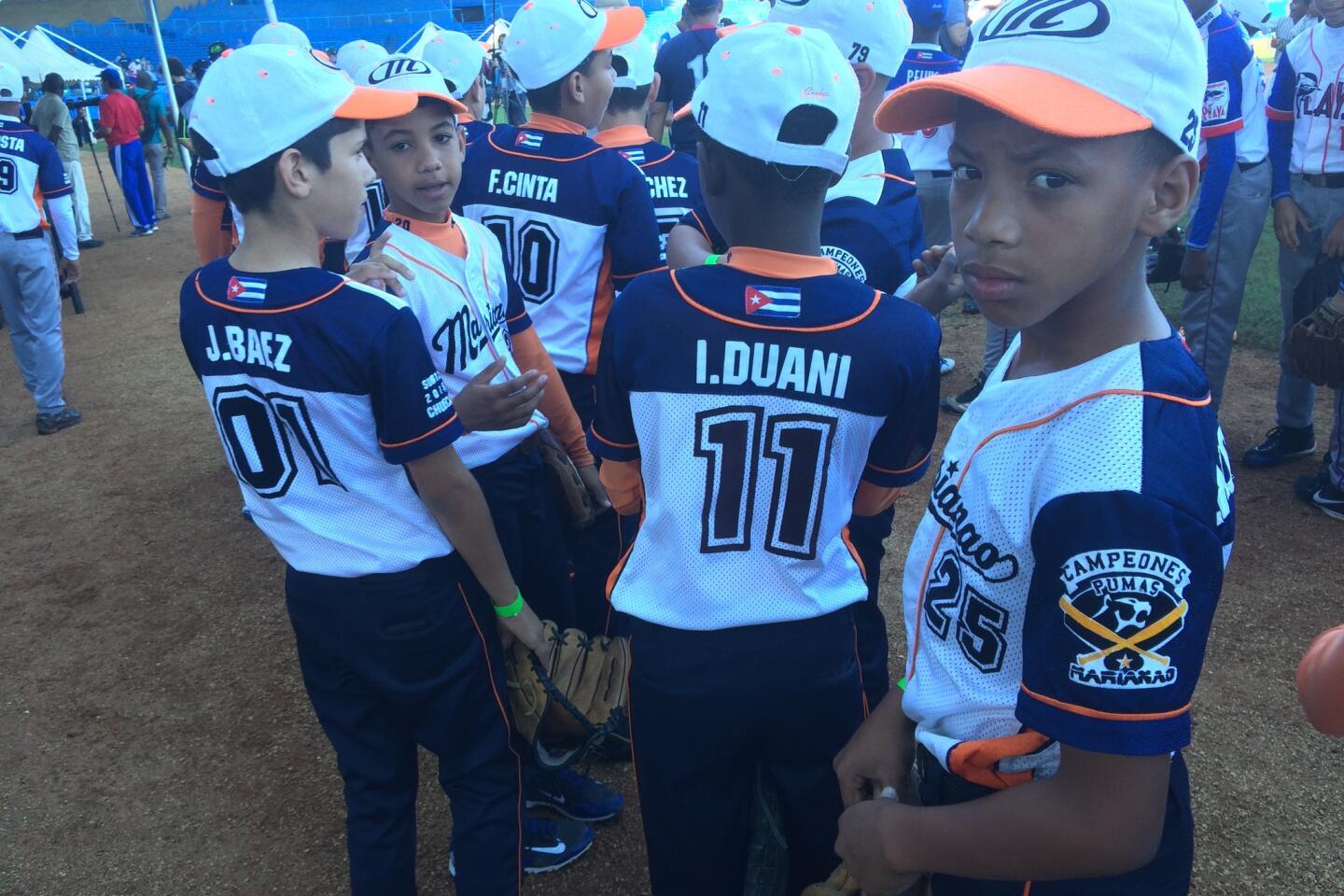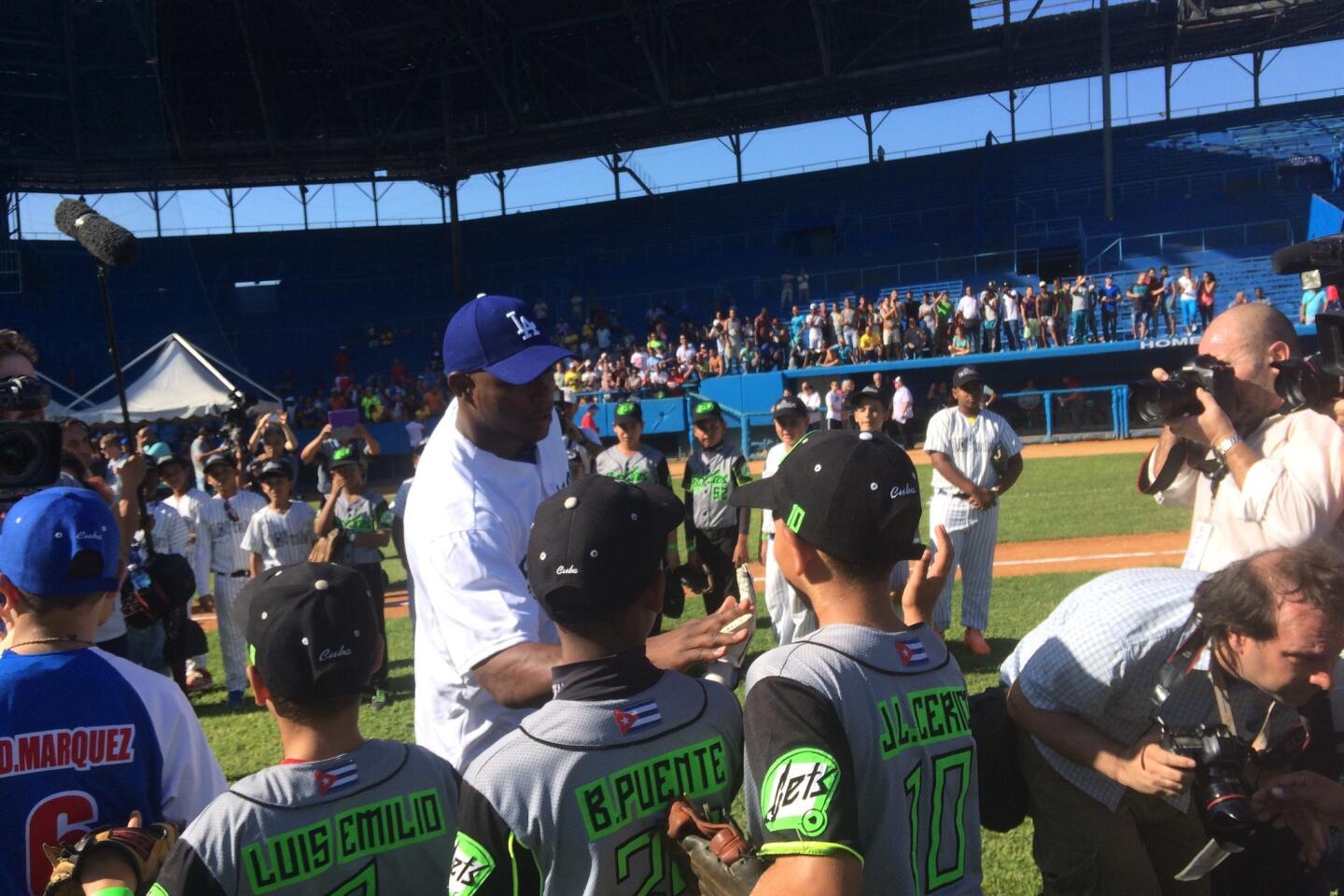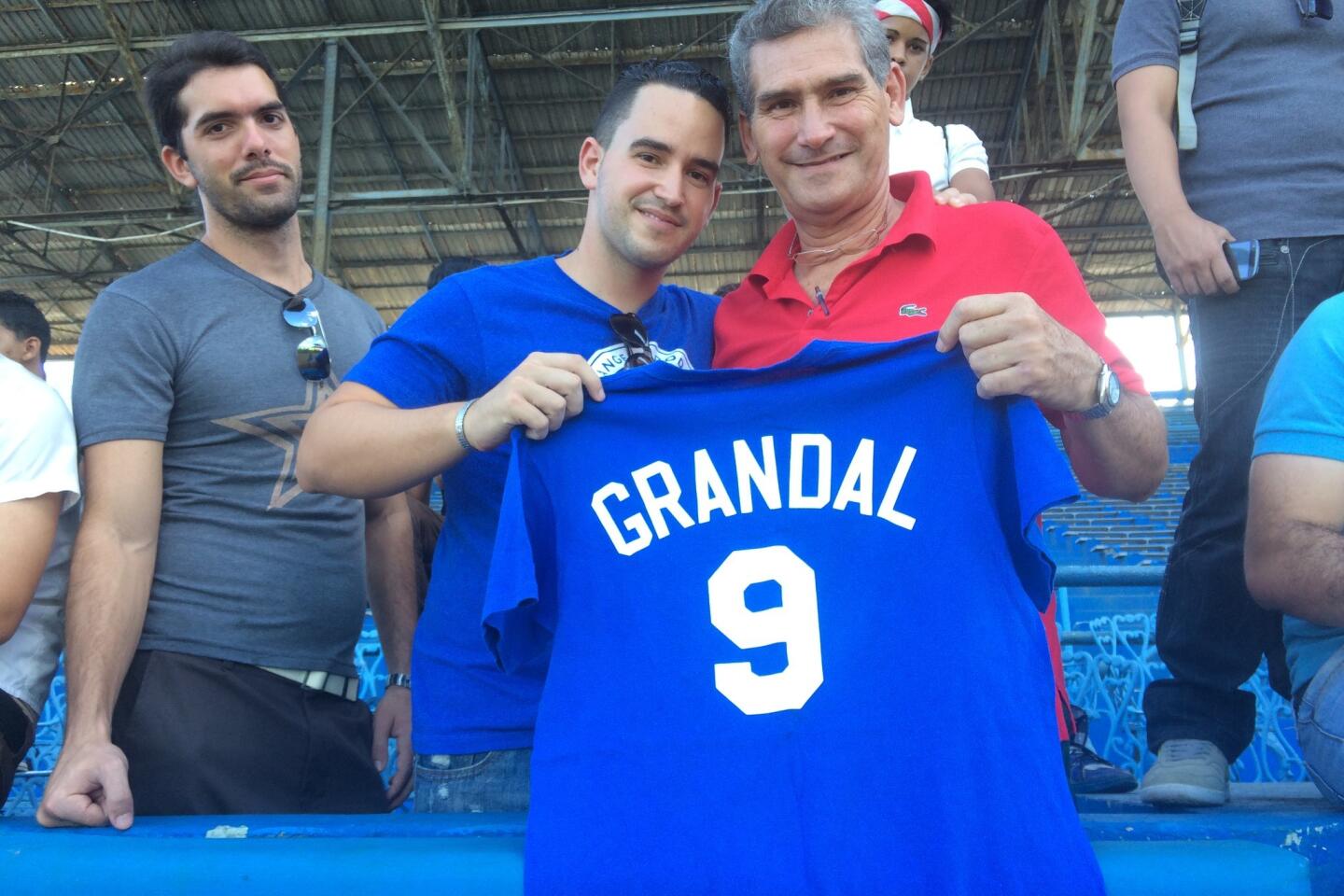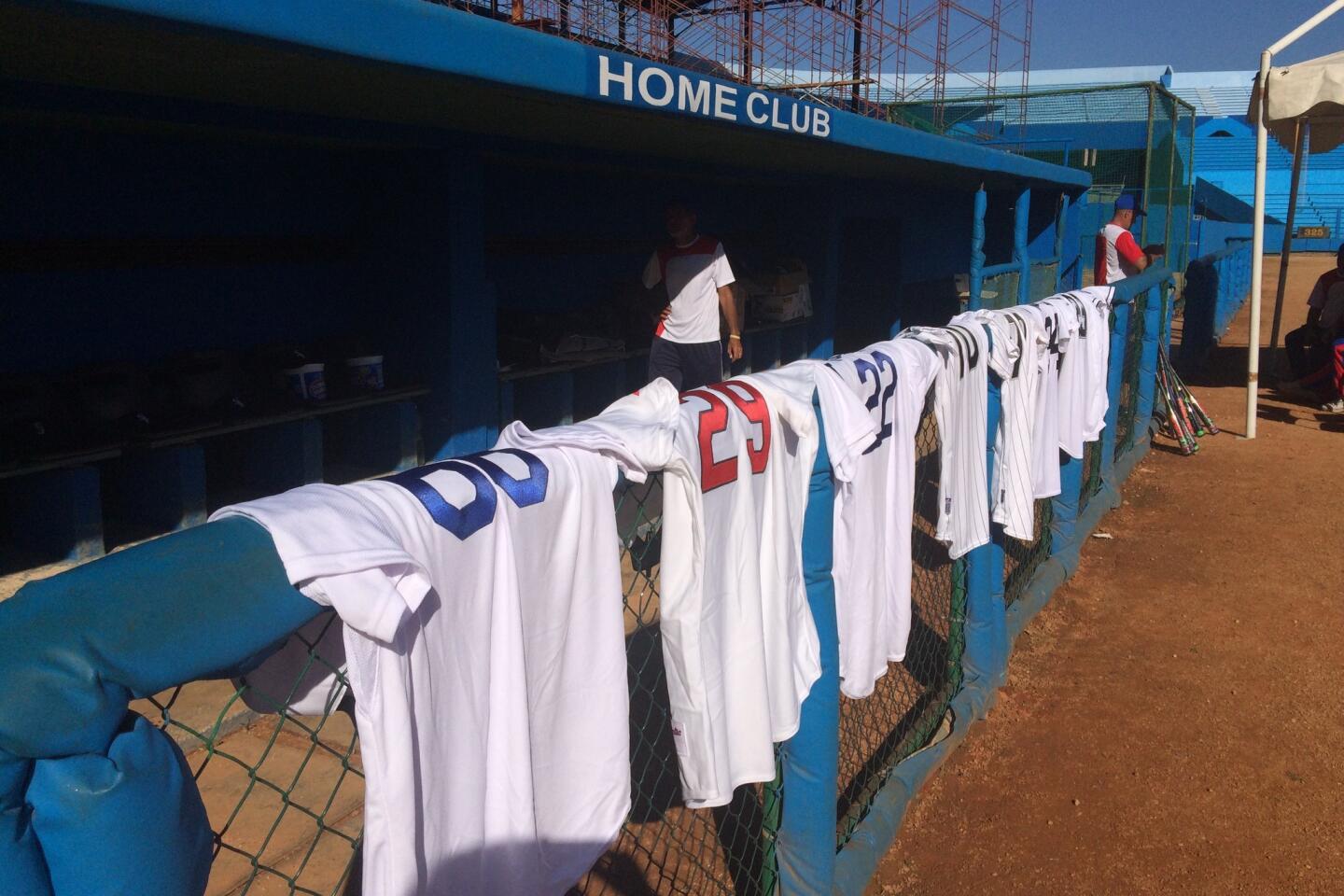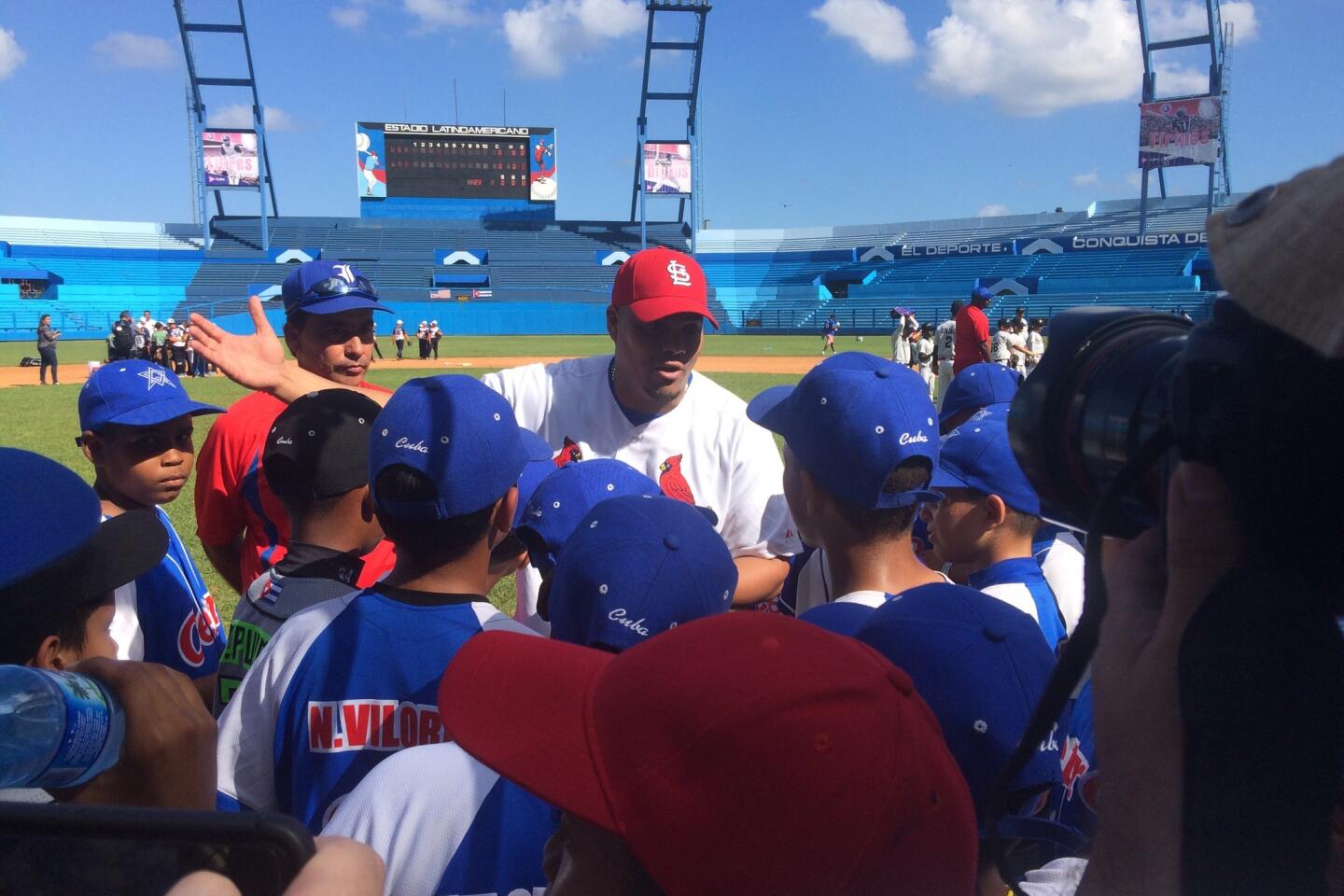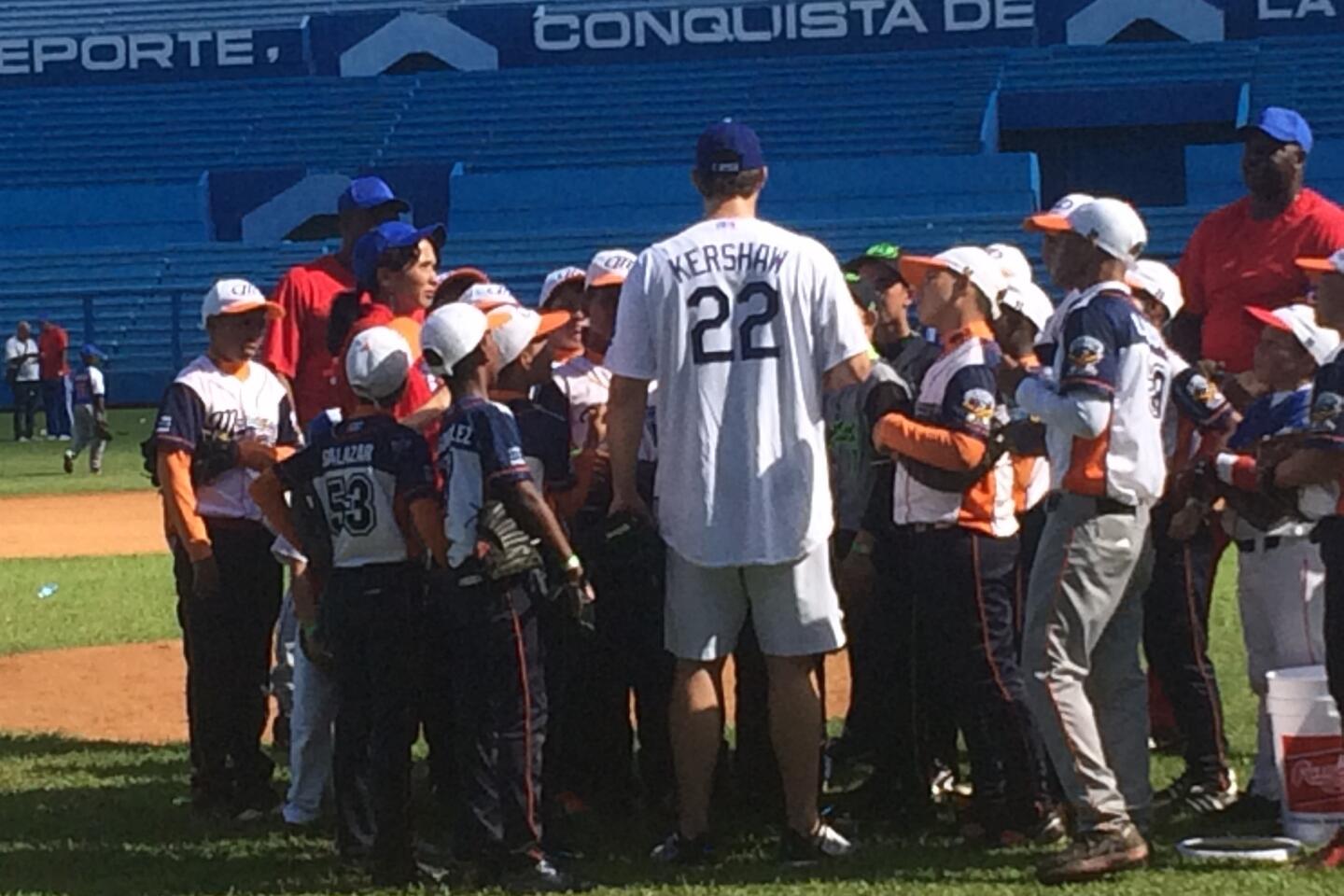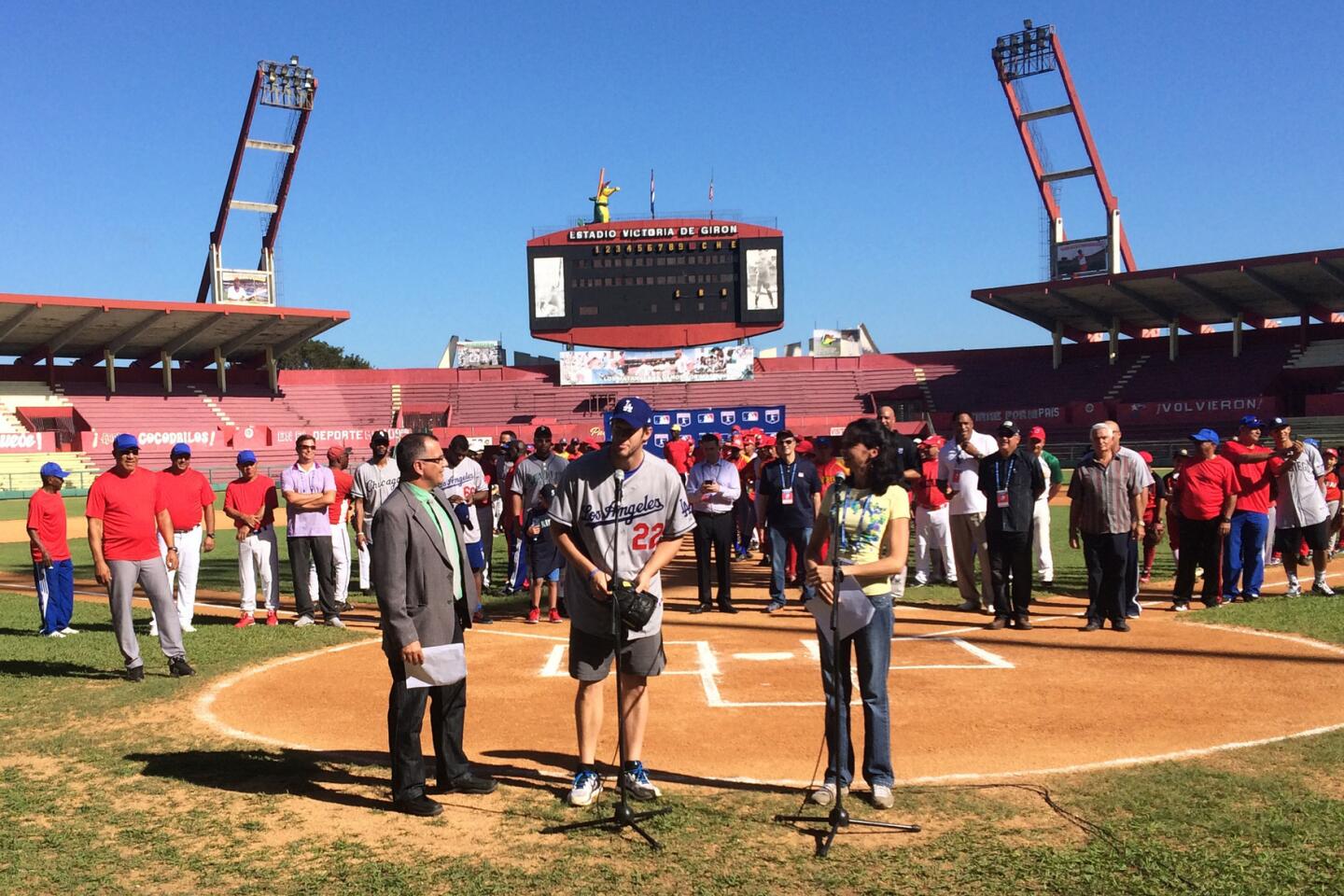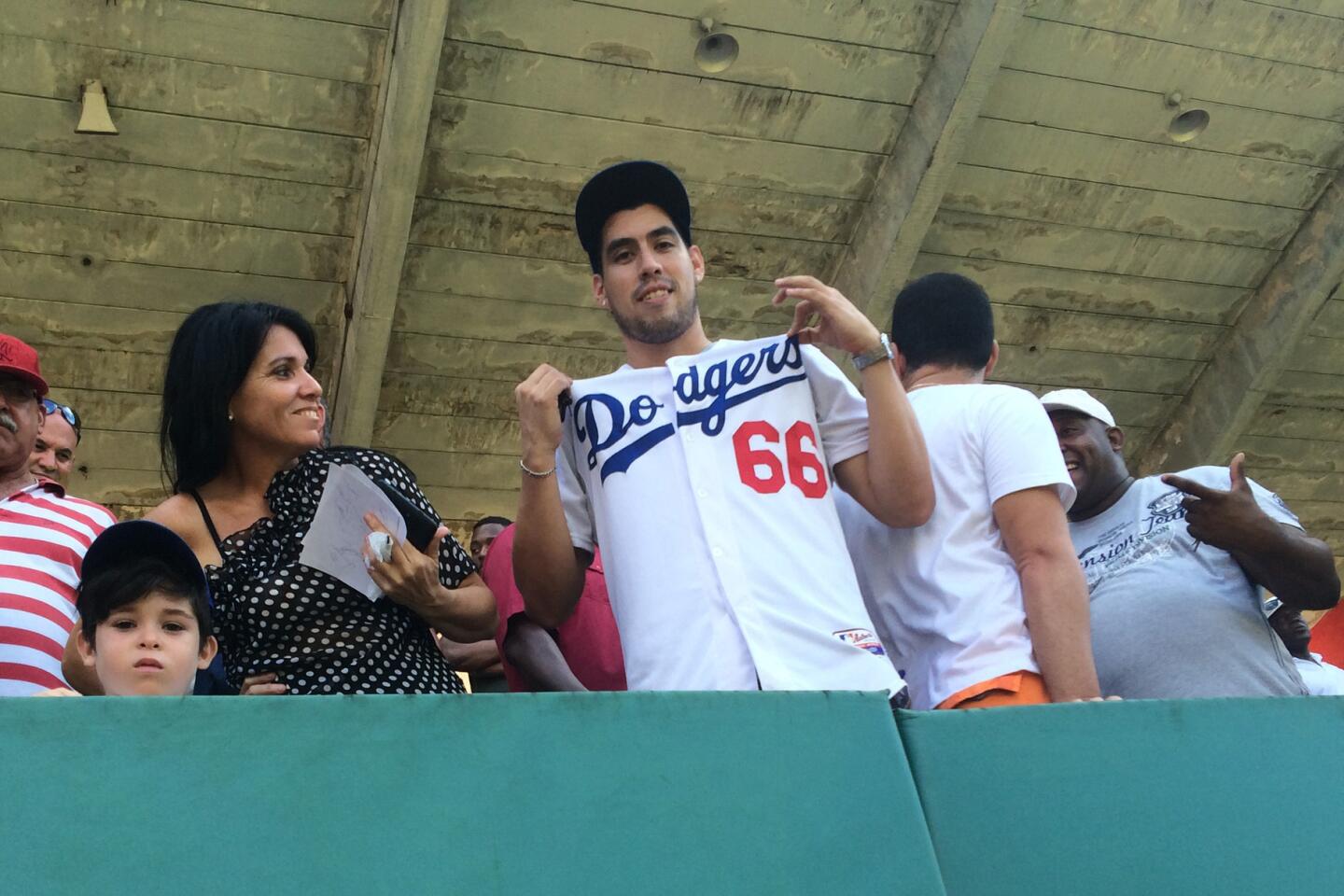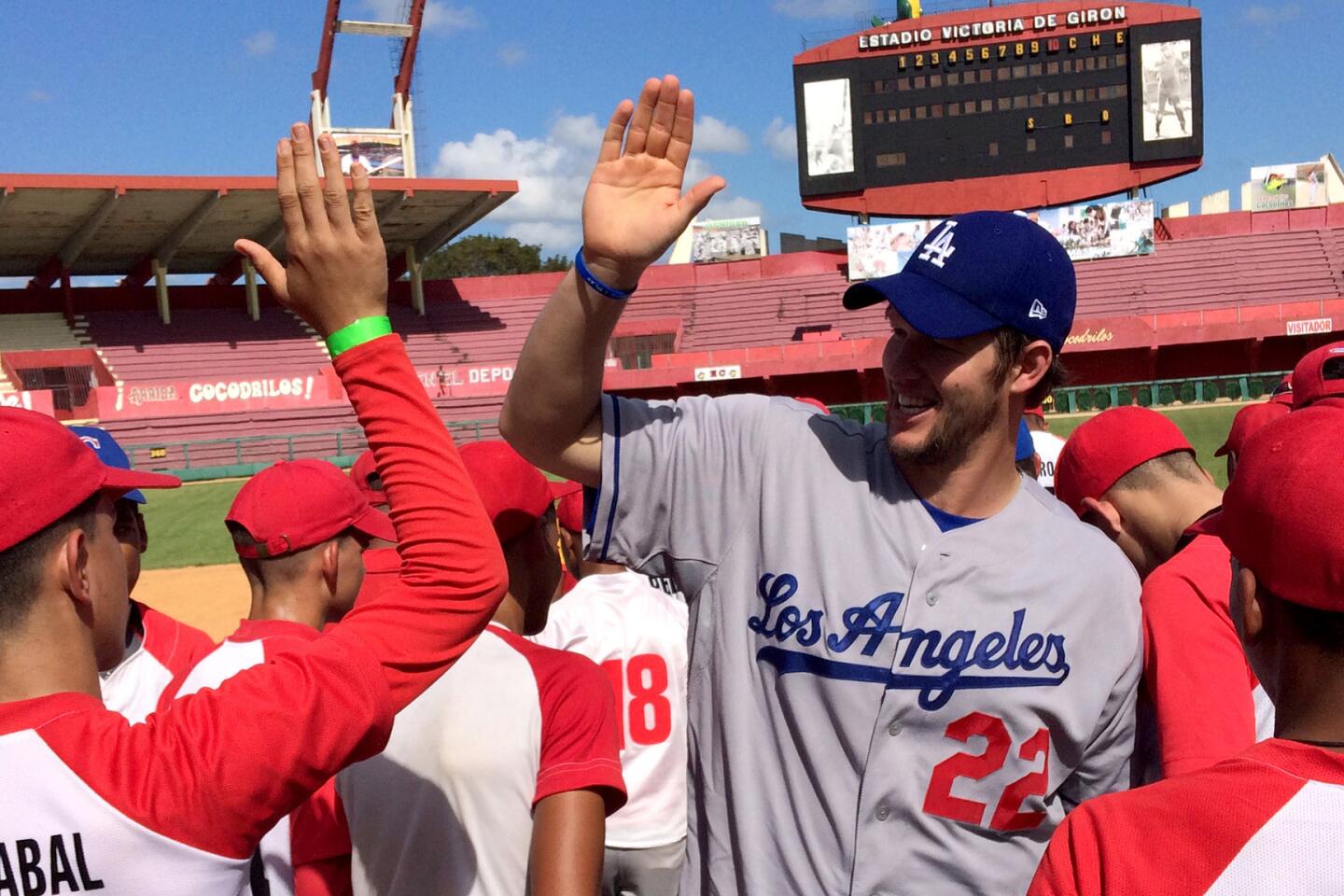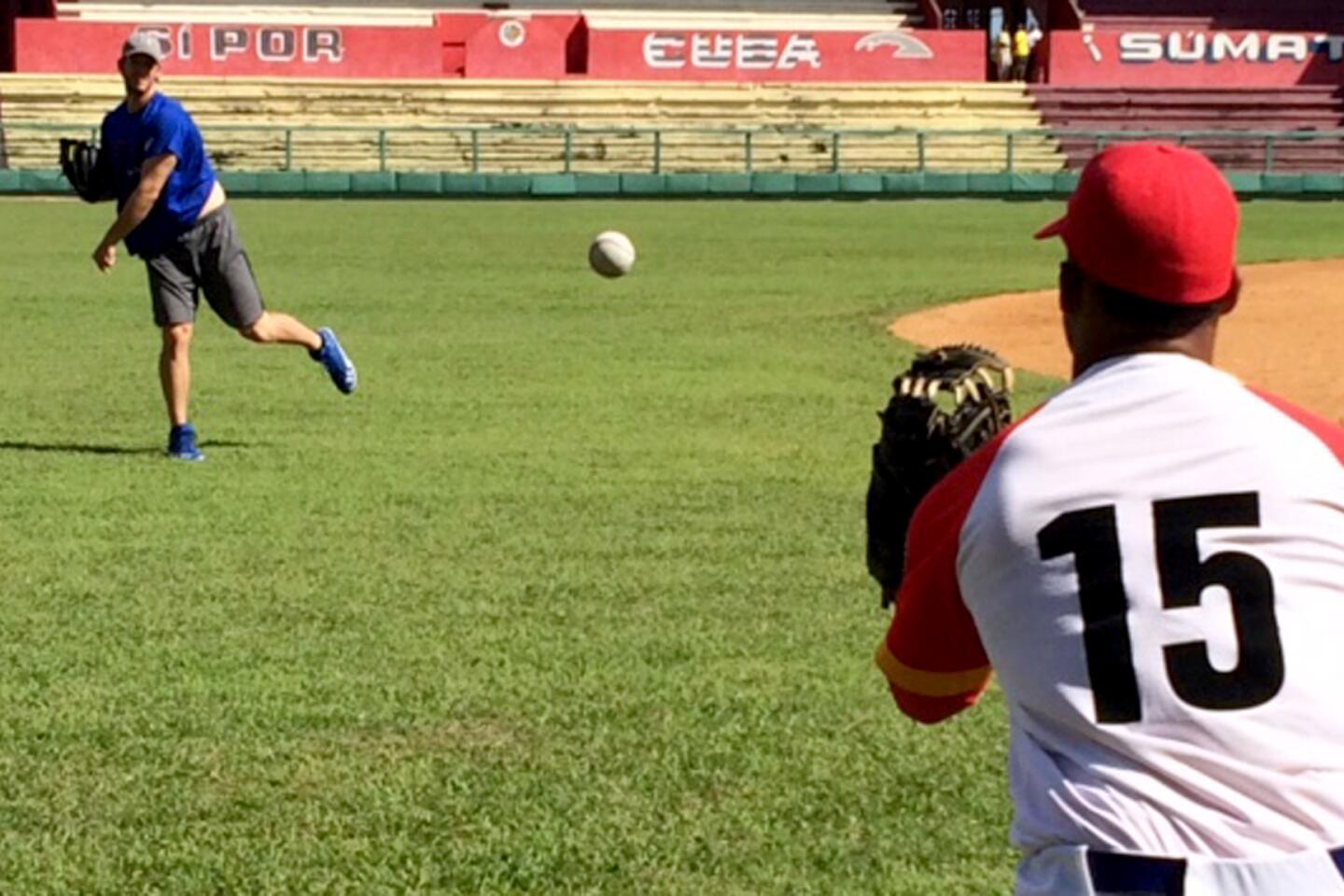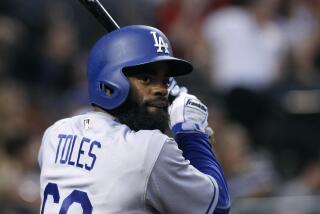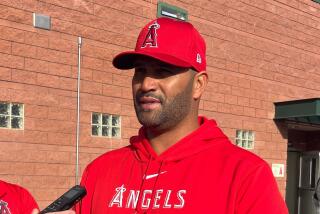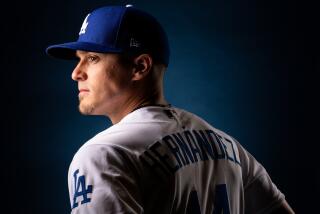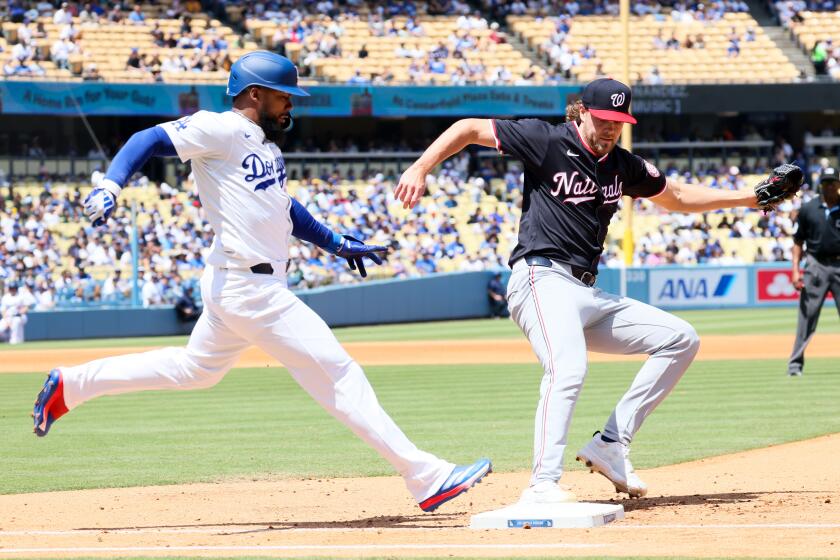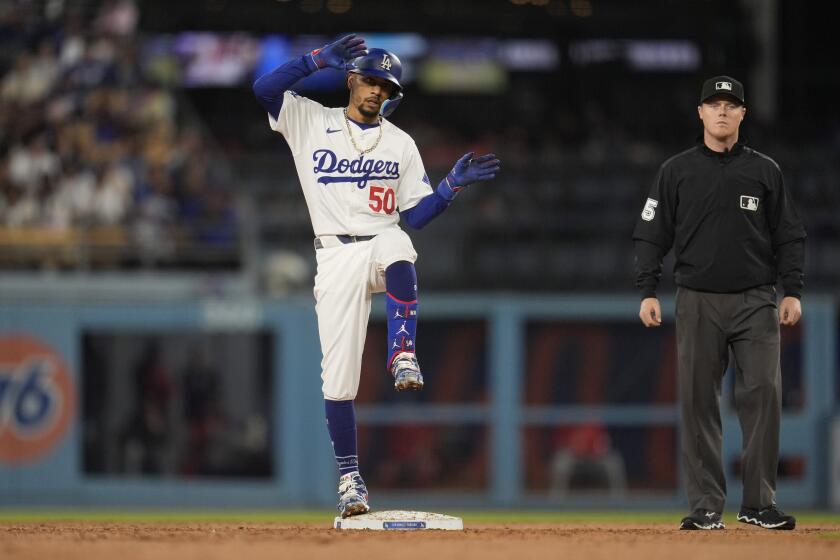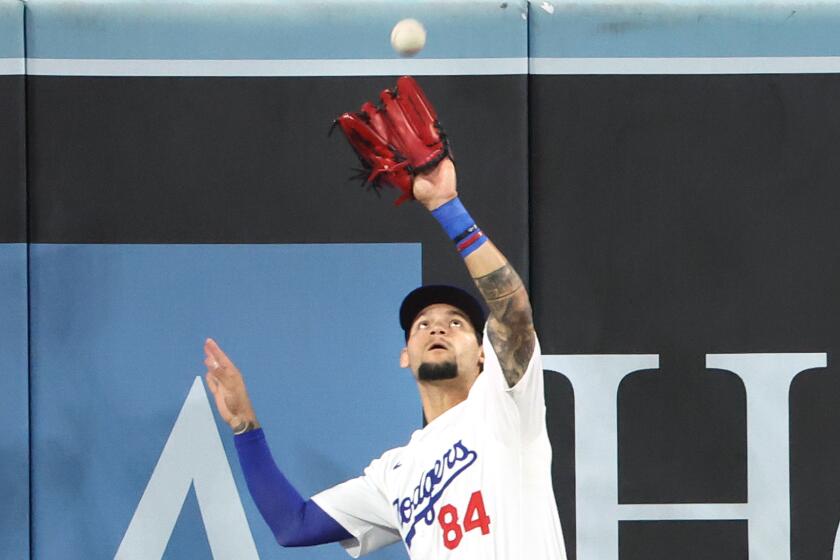Dodgers’ Yasiel Puig has emotional reunion with half brother during visit to Cuba
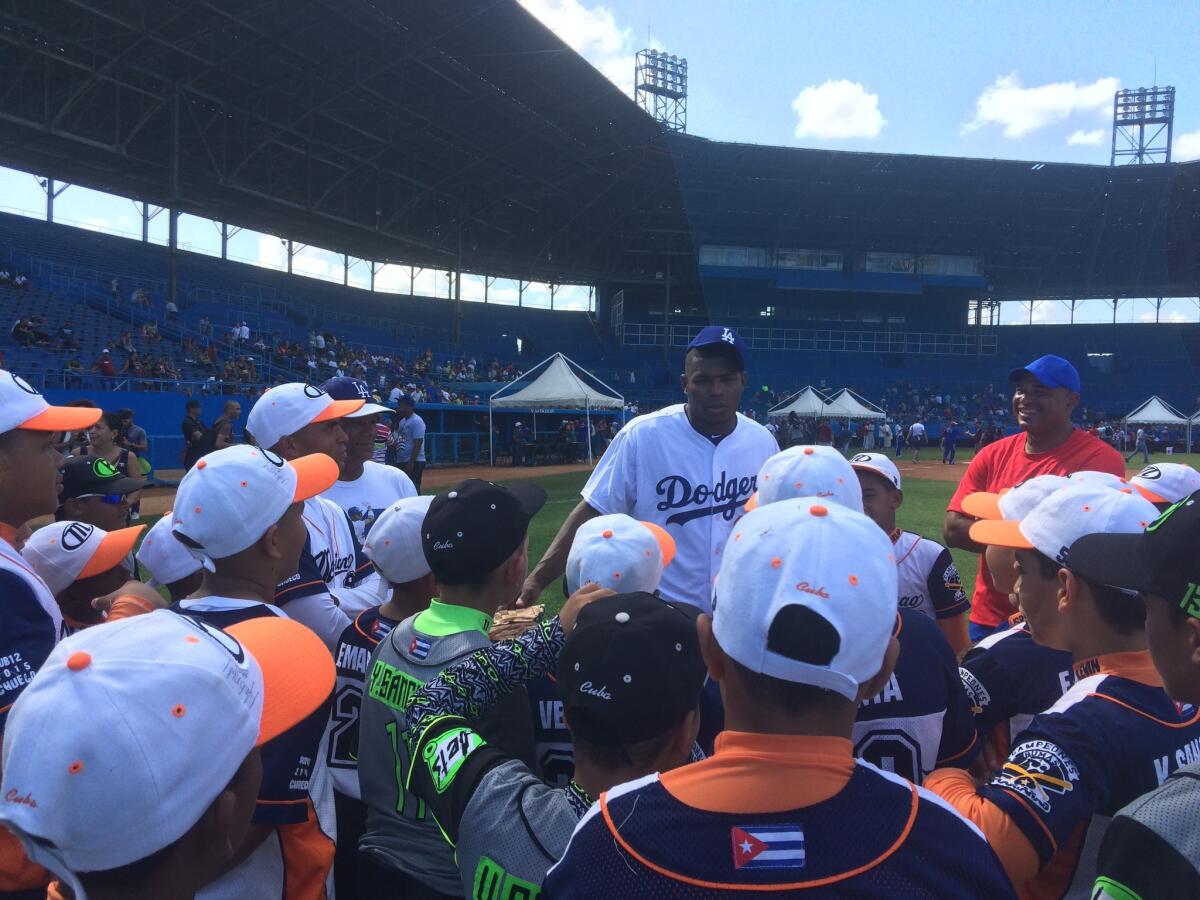
Dodgers outfielder Yasiel Puig talks to Cuban players at Estadio Latinoamericano during a MLB goodwill tour.
For the uninitiated, Cuba can be hot, loud, flamboyant and spectacular all at the same time.
It can also be maddeningly difficult. And that brings us to Yasiel Puig, who is frequently all of those things as well.
But while Puig is of Cuba, until this week he hadn’t been in Cuba for nearly five years. And that seemed like an eternity to Yoan Hernandez, Puig’s half brother.
“I missed him,” Hernandez said Wednesday, a day after an emotional reunion.
When Puig left Cuba to seek riches in the major leagues, the family he left behind knew it might never see him again. Defectors who return to the island risk lengthy prison terms and it can be difficult, if not impossible, for Cubans to travel to the U.S.
Much of that was brushed aside this week when four defectors were allowed to return to the island on a goodwill tour organized by Major League Baseball and the Cuban Baseball Federation, a visit both sides hope will lead to an accord making it safer and easier for big league teams to sign Cubans.
And although the benefits of an agreement for the teams and players are obvious, it’s no less important for people like Hernandez. More than 300 Cuban players have defected in the last 24 years, and for many of those left behind the toll has been enormous.
“We didn’t think they would let him return because of the laws we have and the restrictions,” Hernandez, 33, dressed in a blue Dodgers T-shirt, said as he stood along the right-field line at cavernous Estadio Latinoamericano, where Puig was taking part in a baseball clinic. “One day my mother told me he was returning to Cuba and I didn’t believe it. Until I saw him, I thought it was a lie.”
Not far away, Yohandri Grandal and his father Avelino sat in the first row of the grandstands, watching the clinic. Baseball, and politics, have separated their family as well.
Yohandri’s brother, Yasmani, a Dodgers catcher, left Cuba for Miami with his mother 17 years ago. The siblings have rarely seen each other since and Avelino said he hasn’t seen his son since 2010.
He got a little closer Wednesday when Clayton Kershaw, who is also participating in the goodwill tour, saw Avelino waving a tiny blue Dodgers jersey with Grandal’s name and number. So Kershaw walked over to the two men and reached up into stands to shake their hands.
For now, talking to the pitcher who throws to his brother is about as close as Yohandri figures to get to a reunion. But he’s hopeful the negotiations between baseball officials in the U.S. and Cuba can change that.
Among the proposals on the table are recurring big league games in Cuba during spring training and in the regular season.
“It would be a great change,” he said.
The rest of Cuba appears ready for it as well.
Puig and the other Cubans who returned to the island this week, St. Louis Cardinals catcher Brayan Peña, free-agent shortstop Alexei Ramirez and Chicago White Sox slugger Jose Abreu, have been mobbed everywhere they’ve gone. After Wednesday’s clinic, the players were scheduled for lunch at El Floridita, the iconic Havana haunt of writer Ernest Hemingway. But as soon as the MLB bus pulled up, a huge crowd formed, forcing the restaurant to post guards at the door to keep people out.
After signing autographs and posing for pictures with waiters and bartenders, three players, including Puig, escaped in a media bus.
Everyone, it seems, is in favor of reconciliation.
“The fact that the Cuban officials allow these guys to come back is a very positive message,” said Omar Minaya, a former big league scout and general manager. “It sends a big message of wanting to engage and have a dialogue.
“You have baseball moving diplomacy. And that’s what baseball historically has done. It’s doing the job of bringing people together.
“That’s the beauty of this.”
More to Read
Are you a true-blue fan?
Get our Dodgers Dugout newsletter for insights, news and much more.
You may occasionally receive promotional content from the Los Angeles Times.

